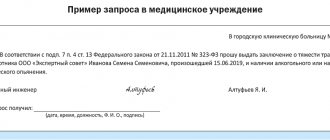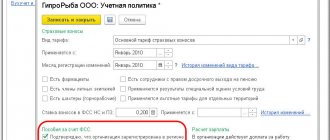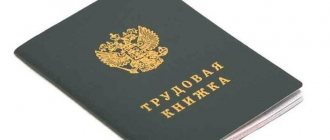When performing job duties, the employee must use special clothing and personal protective equipment issued by the employer and observe safety precautions, the rules of which he must be notified of in the form of instructions. It is the employer's responsibility to provide safe working conditions. Failure of the parties to an employment contract to comply with their obligations may result in a fatal industrial accident. If during the investigation of the incident by the commission, in which in this situation it is necessary to involve employees of the prosecutor’s office, it was found that it has the status of a production incident, then the relatives of the deceased are paid all standard payments for social security and under the employment contract. Additionally, funeral expenses are compensated.
Normative base
Deaths at work require a special approach. The Labor Code provides for several articles regulating the actions of the employer in such situations. In general, they are similar to those that the employer commits in the event of an accident with serious consequences. In his actions, the employer must be guided by the following articles of the Labor Code:
- 227. It establishes cases in which an investigation is required.
- 228. This article establishes specific responsibilities of the employer in case of accidents.
- 228.1 It establishes the procedure for notifying government agencies.
- 229. This norm establishes the rules for the formation of commissions investigating accidents.
- 229.1. This article sets out the time limits within which the investigation must be carried out.
- 229.2. This norm establishes the procedure for conducting an investigation.
- 229.3. This article establishes cases in which the investigation is carried out by a labor inspector.
- 230. This norm establishes the procedure for drawing up documents drawn up during the investigation. Their forms are present in the Resolution of the Ministry of Labor No. 73 of 2002.
Administrative liability of the employer in case of an accident at work
If the head or other responsible person of the organization refuses to comply with the requirement or order of an official of the regulatory body (for example, to submit documents on labor protection to the state labor inspector during the investigation of an accident), administrative punishment is provided in the form of a warning or a fine in the amount of 2,000 to 4,000 rubles . (Part 1 of Article 19.4 of the Code of Administrative Offenses of the Russian Federation).
For other actions that impede the inspection (for example, if a state inspector is not allowed into an organization), the head of the organization can be fined from 2,000 to 4,000 rubles, and the legal entity itself - from 5,000 to 10,000 rubles. (Part 1 of Article 19.4.1 of the Code of Administrative Offenses of the Russian Federation).
If, as a result of obstacles on the part of the organization, the inspection was never carried out, the fine will be (Part 2 of Article 19.4.1, note to Article 2.4 of the Code of Administrative Offenses of the Russian Federation):
- from 5,000 to 10,000 rubles. — for the head and other responsible persons of the organization;
- from 20,000 to 50,000 rub. - for the organization.
If the manager (other responsible person) held accountable within the period specified in Art. 4.6 of the Code of Administrative Offenses of the Russian Federation, if he repeatedly interferes with the inspection, he may be disqualified for a period of six months to one year or fined in the amount of 10,000 to 20,000 rubles. The organization, in case of repeated violation, faces a fine of 50,000 to 100,000 rubles. (Part 3 of Article 19.4.1 of the Code of Administrative Offenses of the Russian Federation).
If during the investigation of the accident it is proven that the employer violated labor protection legislation, he faces administrative liability in accordance with Art. 5.27.1 Code of Administrative Offenses of the Russian Federation.
For failure to comply within the prescribed period or improper fulfillment of a legal order of the state labor inspector to eliminate violations of labor legislation and other regulatory legal acts containing labor law norms, the employer may be held administratively liable in accordance with Part 23 of Art. 19.5 Code of Administrative Offenses of the Russian Federation.
If there were attempts to hide the occurrence of an insured event (caused by an accident), the organization may be fined in the amount of 5,000 to 10,000 rubles, and the head of the organization - from 500 to 1,000 rubles. (Article 15.34, note to Article 2.4 of the Code of Administrative Offenses of the Russian Federation).
Preserving the environment
The manager of the enterprise must fence off the area and not allow other employees to change anything or remove any parts at the scene of the incident. It is necessary to preserve the situation for the commission members who will investigate everything. It must be remembered that even a seemingly insignificant detail can later become evidence of the guilt or innocence of the management and officials of the enterprise. For example, the commission may determine that a woodworking machine was not equipped with a security system. Thus, the fatal industrial accident occurred as a result of management’s negligence in ensuring local safety. It is often impossible to preserve the situation of an incident. For example, failure to act may endanger the safety of other employees. In such a situation, it is necessary to record all important details. This can be done using video or photography. The received materials are transferred to the members of the commission.
What does an employer face in the event of a work injury?
The consequences for the employer depend on the severity of the employee’s injuries and the establishment of the causes of the incident.
In case of a group or serious accident (including a fatal accident), the investigation commission includes, in addition to the organization’s employees, representatives of the state labor inspectorate, the Social Insurance Fund, the regional trade union, and the local administration. Accordingly, the commission, as a rule, is initially unfriendly towards the employer and will try to find the slightest violations in order to accuse him of causing harm to the employee. When identifying the culprits of the accident, the commission will first require that they be brought to disciplinary liability. And then, depending on the violations committed and their consequences, the employer’s officials will be held accountable both administratively and criminally, up to and including imprisonment.
So, part 1 of Art. 5.27.1 of the Code of Administrative Offenses of the Russian Federation provides for the imposition of an administrative fine on officials in the amount of 2,000 to 5,000 rubles, and on legal entities in the amount of 50,000 to 80,000 rubles for violation of labor protection requirements.
Allowing an employee to perform his job duties without undergoing training in the established order and testing knowledge of labor protection requirements, and mandatory preliminary and periodic medical examinations, entails the imposition of an administrative fine on officials in the amount of 15,000 to 25,000 rubles, and on legal entities - from 110,000 to 130,000 rubles (part 3 of article 5.27.1 of the Code of Administrative Offenses of the Russian Federation).
And for failure to provide workers with personal protective equipment, officials will be fined in the amount of 20,000 to 30,000 rubles, and legal entities - from 130,000 to 150,000 rubles (Part 4 of Article 5.27.1 of the Code of Administrative Offenses of the Russian Federation).
Violation of labor protection requirements committed by a person entrusted with the obligation to comply with them, if this entailed through negligence the infliction of serious harm to human health, is punishable by a fine in the amount of up to 400,000 rubles or in the amount of the wages or other income of the convicted person for a period of up to 18 months, or compulsory labor for a period of 180 to 240 hours, or correctional labor for a term of up to two years, or forced labor for a term of up to one year, or imprisonment for the same period with deprivation of the right to hold certain positions or engage in certain activities for a term of up to one year or without it (Part 1 of Article 143 of the Criminal Code of the Russian Federation).
And the same act, which through negligence resulted in the death of a person, is punishable by forced labor for a term of up to four years or imprisonment for the same period with deprivation of the right to hold certain positions or engage in certain activities for a term of up to three years or without it (Part 2 of Art. 143 of the Criminal Code of the Russian Federation).
Violation of safety rules when carrying out mining, construction or other work, if this entailed through negligence the infliction of grievous harm to human health or major damage, is punishable by a fine in the amount of up to 80,000 rubles or in the amount of the wages or other income of the convicted person for a period of up to six months, or restriction of liberty for a term of up to three years, or forced labor for a term of up to three years, or imprisonment for the same term with or without deprivation of the right to hold certain positions or engage in certain activities for a term of up to three years (Part 1 of Article 216 of the Criminal Code RF).
The same act, which through negligence resulted in the death of a person, is punishable by forced labor for a term of up to five years or imprisonment for a term of up to five years with or without deprivation of the right to hold certain positions or engage in certain activities for a term of up to three years (Part 2 of Art. 216 of the Criminal Code of the Russian Federation).
In addition, the injured employee has the right to demand compensation from the employer for moral damage, the amount of which is determined by agreement of the parties or by the court.
Notification
The legislation establishes the obligation of the head of an enterprise to notify a number of government agencies that a fatal accident has occurred at work. These government agencies include:
- GIT (labor inspection). The notice is sent to the unit located at the address of the enterprise.
- The prosecutor's office.
- Territorial division of the FSS.
- District or municipal administration.
- Regional trade union association.
If the death of an employee at work was associated with acute poisoning, a notification is also sent to Rospotrebnadzor. If an incident took place at a hazardous facility, Rostekhnadzor is notified. These government agencies send their representatives to the enterprise. They are part of the commission conducting the investigation.
Fatal accident at work
Unfortunately, workplace deaths also occur. Although much attention is paid to safety and labor protection rules. The reasons may be different:
- Failure to comply with safety regulations.
- Disruption of the production process.
- Non-compliance with working conditions.
- Sudden deterioration in health.
- Faulty equipment.
In any case, a commission must be appointed. How should a manager act if a fatal accident occurs at work?
Request to a medical institution
It must also be sent to the head of the enterprise. To conduct an investigation, a conclusion from a medical institution is required. It indicates the causes of death of a person. In addition, the conclusion contains information about the citizen’s condition before death. For example, whether he was drunk or not. The death of a person at work can occur due to an exacerbation of any disease. For example, a citizen’s heart stopped. Only a medical institution can provide accurate and reliable information.
Who needs to be notified
There are a number of authorities that need to be notified of what happened. These include:
- State Labor Inspectorate.
- FSS.
- Municipal administration.
- Prosecutor's office.
- Regional trade union association.
- Rospotrebnadzor, if the cause was poisoning.
- Rostekhnadzor, if the incident occurred at a hazardous facility.
If an accident occurs at work, the manager is obliged to notify all the above authorities. It is important to submit notification of a work-related fatality within the state-mandated time frame. Form 1 is filled out directly by the head of the enterprise. The date and time of transmission of the notice is recorded at the bottom of the document and the data of the person who accepted it.
The management of the enterprise notifies the relatives of the deceased. Also, relatives can be present at the meeting of the investigation commission, but do not have the right to be part of it.
The head of the enterprise must have a medical report on the cause of death of the employee for the investigation. It should also indicate the condition of the deceased before the incident occurred. He may have been drunk or unwell. This may also affect the progress and results of the investigation.
Creation of a commission
The investigation of a fatal industrial accident must be carried out by the manager himself and employees of government agencies. The commission may include a representative of the employer instead of the employer. After sending a notification to government agencies and receiving information from them about the representatives who will participate in the investigation, the head issues an order. In it he indicates the composition of the commission. The chairman can be a labor inspector or a representative of Rostechnadzor. It is prohibited to include in the commission specialists from the enterprise who were supposed to monitor compliance with occupational safety requirements at the site where the tragedy occurred.
Design nuances
The actual occurrence of an insured event obliges the insurer to pay in full. The first thing you need to do to file an insurance claim is write a statement.
Some companies provide their standard form at the stage of concluding a contract. You can write an application in any form or use a printed standard form.
After this, it is important to collect the required package of documents. In each specific case, the list may vary and directly depend on the nature of the insured event. But among those that are most important for the insurer are the following:
- Statement of the beneficiary or legal heir.
- The applicant's passport or any identification document, as well as TIN.
- Original contract.
- Client's death certificate.
- Documentary confirmation of the right of the beneficiary or heir.
- A medical report on the cause of death or a document that directly confirms the occurrence of an insured event: a certificate of disability, a traffic police report on an accident or a report on an industrial accident.
The insurer must be notified of the occurrence of an insured event no later than 30 days from the date of death of the client. If it is impossible to collect and submit documents for valid reasons, you must notify a representative of the insurance company in advance.
Events that are not considered as insurance include:
- death from drug or alcohol intoxication;
- suicide;
- death due to extreme sports;
- deliberately creating a deadly situation;
- concealing a fatal disease or refusing to take vital medications;
- the client died from the effects of cosmetic surgery.
- Life and health insurance usually covers the following insured events:
- temporary disability status;
- the client's age specified in the contract;
- death due to independent causes;
- a fatal disease has been diagnosed;
- severe injuries due to illegal actions of third parties;
- urgent need for emergency surgery;
- disability of any group after suffering a serious illness or injury.
Documenting
The commission investigating the incident attaches to the case materials:
- An official report indicating the causes of death of the employee. It is issued by a forensic medical expert at the request of the head of the enterprise.
- Protocol of inspection of the area where the tragedy occurred. Video and photographic materials may be attached to it.
- A copy of the document confirming the completion of the medical examination.
- Protocol for interviewing eyewitnesses/witnesses of the incident.
- Copies of documents confirming that the deceased received safety and occupational safety training.
Meeting
It is organized after the investigation is completed and all documents have been collected. Relatives of the employee who died at work are notified of the date, place and time of the meeting. During it, a study of the collected documents is carried out, as a result of which the issue of classifying the accident as related or not related to the production activities of the citizen is resolved. In addition, at the meeting, employees are identified who committed violations of occupational safety requirements, as a result of which their colleague died.
Criminal liability of the employer in case of an accident at work
If the accident was severe or resulted in the death of an employee, the perpetrator will be held criminally liable.
For causing serious harm to the health of an employee, punishment is provided in the form (Part 1 of Article 143 of the Criminal Code of the Russian Federation):
- fine up to 400,000 rubles. or in the amount of wages (or other income) of the convicted person for a period of up to eighteen months;
- compulsory work for a period of 180 to 240 hours;
- correctional labor for up to two years;
- forced labor for up to one year;
- imprisonment for up to one year. Additionally, the perpetrator may be deprived of the right to hold certain positions or engage in certain types of activities for up to one year.
If the accident led to the death of an employee, the perpetrator will be punished as follows (Part 2 of Article 143 of the Criminal Code of the Russian Federation):
- imprisonment for a term of up to four years. Additionally, the perpetrator may be deprived of the right to hold certain positions or engage in certain types of activities for up to three years.
If an accident led to the death of several workers, the culprit may (Part 3 of Article 143 of the Criminal Code of the Russian Federation):
- be sent to forced labor for up to five years;
- imprisoned for a term of up to five years. Additionally, the perpetrator may be deprived of the right to hold certain positions or engage in certain types of activities for up to three years.
For example, the head of an organization, his deputy, or the head of a structural department may be held accountable under Art. 143 of the Criminal Code of the Russian Federation in the event that they knew about the violations, but did not take the necessary measures to eliminate them, gave instructions that contradict regulatory labor protection requirements, or did not ensure their compliance.
The court, based on the results of an investigation into the circumstances of the accident, the nature of the violations committed, the severity of the consequences, studying the job responsibilities of each responsible person and other factors, decides the question of who should bear criminal liability for an industrial accident in each specific situation (clause 8 of the Plenum Resolution Supreme Court of the Russian Federation dated April 23, 1991 No. 1).
Case materials
Based on the results of the meeting, packages of documents are formed for the prosecutor’s office and members of the commission. They include acts according to f. N-1 (about the incident) and f. 4 (about the investigation). One original is submitted to the State Tax Inspectorate, the trade union, the Social Insurance Fund, a representative of the administration, the employer and the prosecutor's office. One act according to f. N-1 is given to the relatives of the deceased. The generated packages of documents are sent to the above authorities within three days from the date of completion of the investigation. The head of the enterprise is obliged to register the incident in the appropriate logbook.
Who is responsible for death resulting from a work injury?
A man dies in hospital as a result of a traumatic brain injury received while troubleshooting an equipment problem at his workplace (this is part of his duties). The commission writes in its conclusion that only this person is to blame, because... He completed the safety training and used an item not intended to fix this type of problem. But the victim did not take this item himself, but it was suggested and brought by the site foreman. He received an injury from being hit by this object. Medical assistance was provided immediately and in full, but after a short coma the man died. Who is responsible for the death in this case? Do the relatives of the victim have the right to any compensation?
The investigation of an industrial accident is carried out by a commission headed by a state labor inspector. Based on the results of the investigation, Act N-1 is drawn up. Relatives of the deceased have the right to familiarize themselves with the materials of the investigation. It is this act that is the main one for later submitting documents to the social insurance fund to assign payments to the relatives of the deceased. If relatives do not agree with the results of the investigation, they have the right to go to court to appeal the actions and conclusions of the commission. The commission decides and identifies those responsible for this accident. Here we can clearly see both the fault of the master and the fault of the victim. If the victim had remained alive and received a disability, and if the commission had found the victim’s guilt, then Act N-1 indicated the percentage of the victim’s fault, but according to the law, the victim cannot have a degree of guilt of more than 25%, even if he himself completely guilty. In the event of a fatal accident, the relatives of the victim must, with a full package of documents, including Act N-1, contact the Social Insurance Fund to assign payments. Payments are made in full, regardless of whether the victim was at fault in the accident or not. If the commission finds the master guilty of this accident, then most likely he will be subject to criminal punishment.
If a person was injured and died while performing his official duties, the commission conducting the investigation must establish the cause of the injury and subsequent death. If a person performed his job duties in compliance with all the requirements for safe work performance and was injured, then the owner of the enterprise where the employee worked bears financial responsibility in accordance with the collective agreement and the employment contract between the employer and the employee. The death is being investigated and the causes of death are being further determined. In any case, the relatives of the deceased can apply for legal assistance and receive it regardless of the commission of inquiry. This will make it possible to control the investigation process. The fact of using a foreign object in work establishes the investigation, according to all the details: where, why, who allowed it. And don’t forget, in production there is no way to perform work, especially emergency work, alone.
My condolences. Of course, such cases are far from uncommon in production. Alas. Nevertheless, life goes on for the rest and they also need to somehow live and get money for a piece of daily bread. To the essence of your question, I inform you that if a person has undergone safety training, then legally he has assumed full responsibility for his life and health. Another issue is that if the tool provided to the worker was defective and it could not be detected by him, then the enterprise is at fault and it is obliged to pay compensation to the family of the victim.
If a person died as a result of an injury, then the commission, which must consist of at least 3 people (enterprise management, state labor inspection, labor protection, doctor, law enforcement agencies), must also include an employee of the prosecutor's office.
The commission must draw conclusions based on the testimony of witnesses: what injury was received and as a result of what. If safety precautions are violated, then there is little chance of receiving compensation.
In this case, you can submit an official statement about the investigation of this case via the Internet to the prosecutor's office, to the employer, to the labor inspectorate. Describe in detail how everything happened, who the witness is. In short, all the details and demand that this situation be investigated within the framework of the law. Be sure to save copies. You yourself know what century we are in. Without a piece of paper, as they say, you. Otherwise, everything will move forward if something is kept silent somewhere. According to the official document, they will be obliged to take measures.
If an employee died at the enterprise, then the director or owner of the enterprise would be responsible. And as you can see, in order to avoid problems for the enterprise, they will find nuances. There is always fine print in a contract or safety regulations, where there will be thousands of but. But with an experienced lawyer, you can win your case and find your problems. against them. At a maximum, they will be forced to pay monetary compensation to the deceased, if found guilty, at a minimum they will be fined.
Is the fact “this victim did not take the item himself, but was suggested and brought by the site foreman” recorded in the commission’s act?
The employer is not responsible if safety precautions were violated.
But if the master, as a senior, is responsible for compliance with safety regulations, then the actions fall under Article 143 of the Criminal Code
"1. Violation of safety rules or other labor protection rules, committed by a person who was responsible for complying with these rules, if this resulted through negligence in causing serious harm to human health, is punishable by a fine in the amount of up to two hundred thousand rubles or in the amount of wages or other income. convicted for a period of up to eighteen months, or by compulsory labor for a term of up to four hundred eighty hours, or by correctional labor for a term of up to two years, or by forced labor for a term of up to one year, or by imprisonment for the same term. 2. The same act, which through negligence resulted in the death of a person, is punishable by forced labor for a term of up to four years with deprivation of the right to hold certain positions or engage in certain activities for a term of up to three years or without it, or imprisonment for a term of up to four years with deprivation of the right hold certain positions or engage in certain activities for a period of up to three years or without it.”
If this situation happened to you or your relative, it is better to seek help from a lawyer and seek an independent examination.
Concealment and deliberate evasion of responsibility for an accident at work by an employer are considered administrative violations.
Was there a criminal investigation into the death? - 2 years ago
Consequences
What threatens the head of an enterprise if a death occurs at work? Responsibility, as practice shows, arises for the employer even when no violations of occupational safety rules have been identified on his part. However, it is the manager who is obliged to monitor the behavior of his employees at the enterprise. In accordance with the law, in the event of the death of an employee at work, the employer may be subject to criminal penalties. Its type and size depend on the circumstances of the incident. This could be a fine or imprisonment.
Funeral payments from the employer
When concluding an insurance contract, it is stated that the death of the insured employee is also recognized as an insured event. Therefore, a relative or other person who has undertaken the obligation to bury the deceased is paid a social benefit.
The employer is obliged to pay insurance payments in two cases:
- If the employee's minor child dies.
- If the funeral of a deceased employee is organized by his relatives or other persons.
The procedure for calculating payments for funeral arrangements depends on certain conditions. If an employee’s child died, then under a civil contract, compensation for burial is paid by the social services department. protection of citizens at their place of residence. Such employees are not insured persons, and therefore they are not entitled to insurance payments.
If all conditions are met and the necessary documents are submitted, compensation will be issued on the same day you applied for it. The amount of the funeral benefit depends on the cost of funeral services at the date of death of the employee. The price for each service in the list is indexed annually. For 2021, the benefit amount is 6130.81 rubles.
In some regions and cities, local authorities set their own coefficients. Then the payment amount is calculated taking into account this indicator.
Death at work: compensation
If it is revealed that the death of an employee was due to the fault of the employer, the citizen’s relatives can demand compensation for moral damage through the court. In addition, Article 184 of the Labor Code provides for the following payments in the event of death at work:
- Lost earnings.
- Expenses for medical care and rehabilitation.
- Funeral costs.
As Article 141 of the Labor Code indicates, if the deceased did not manage to receive the salary accrued to him, it is transferred to his relatives. Issuance is carried out within a week from the date of provision of the necessary documents to the head of the enterprise. Article 83 of the Code sets out the grounds for dismissing an employee. One of them is death at work. Payments are made according to general rules and include the amount for unused vacations.
Payments upon death of military personnel
If a serviceman died in the line of duty or was injured, in addition to monetary allowance and compensation for unused vacation, his relatives can receive several types of benefits at once:
- One-time;
- Insurance payments;
- Compensation in case of disability.
Let's look at each payment in more detail.
One-time benefit
A one-time benefit is paid to relatives of military personnel and citizens who died during conscription for military training. Its size is RUB 3,843,168.47. You should contact the military registration and enlistment office to which the citizen was assigned.
Insurance
Insurance pays out if you are injured during military service. The amount of payments depends on the severity of the injury:
- Light – 64,052.81 rubles;
- Heavy – RUB 256,211.23.
If the serviceman died, insurance compensation is paid to all relatives who applied - 2,562,112.32 rubles. Payments are made in equal shares.
Cash compensation for disability
If, while serving, a serviceman receives an injury that results in disability, the amount of payments will be:
| 1 group | RUB 17,934.79 |
| 2nd group | RUB 8,967.39 |
| 3 group | RUB 3,586.95 |
Note! Payments are made monthly until the end of the disabled person’s life in the form of an increase to the basic pension.
Salary to the heirs of the deceased
The composition of earnings paid to the successors of the deceased is enshrined in Article 1183 of the Civil Code. According to the norm, family members of the deceased and his dependents, regardless of whether they lived together or not, are given the right to receive:
- Accrued amounts of earnings and other income equivalent to it.
- Scholarships.
- Pension.
- Compensation for damage to health/life.
- Social Security benefits.
- Alimony, other amounts provided to the subject as a means of subsistence.
If an employee dies, the manager must carry out the dismissal procedure according to the general rules on the basis of a death certificate presented by relatives.
One-time and monthly
Depending on the severity of the insured event, as well as the event that followed it, there are two types of insurance payments: one-time and monthly.
Lump sum: definition and size
Relies on temporary loss of ability to work. In the calculation process, in addition to the basic income, social benefits and payments for temporary part-time jobs are taken into account. In this case, tax-free amounts are taken into account. The amount of compensation also depends on the duration of work at the main place of work. The lump sum amount is: RUB 94,018.
For the insurance company, you will need a salary certificate, a medical examination report, an H1 or H5 act, minutes of a meeting on labor protection, a copy of the work record book and an application for compensation.
What is the deadline?
According to the terms of the contract, in the event of loss of ability to work, the policyholder is assigned a payment based on the official conclusion of the ITU. If the insured event is the death of the client, payment is assigned to third parties who have the legal right to do so.
The payment period should not exceed 30 calendar days from the date of appointment in case of disability.
Monthly
Paid in the event that the insured person either dies or is completely incapacitated. The payment is assigned at the place of registration, and for registration, depending on the situation, the following documents are required:
- act in form N1;
- death certificate;
- certificate of family composition;
- medical report on an industrial accident;
- original contract;
- a document confirming a valid reason that one of the client’s family members is unable to work;
- medical confirmation of the detected occupational disease.
If the event occurred at work
You can count on monetary compensation from the Social Insurance Fund (SIF) in cases of death of an employee in the performance of official duties or in the event of an accident at work.
The size of the lump sum insurance payment in the event of the death of the insured is calculated as a percentage of average earnings and all additional income.
In accordance with Art. 7 Federal Law “On compulsory social insurance against accidents”, the following have the right to receive insurance payment:
- persons who were rightfully supported by the deceased or his disabled dependents;
- any member of the deceased’s family without the opportunity to work due to caring for his young children (grandchildren, brothers or sisters) under the age of 14, who were dependent on him;
- a child of the deceased who was born after his death;
- persons over 14 years of age who were dependent, recognized by the MSEC conclusion as needing outside care;
- former dependents who were unable to work during the first five years after his death;
- one of the parents or spouse who turns out to be unable to work while caring for children or grandchildren, brothers and sisters of the deceased does not lose the right to receive payments even after the end of such care.
The assigned amount is subject to revision only in the event of indexation, receipt of a different degree of disability, changes in the list of persons rightfully receiving payment due to the death of the victim, or upon receipt of new information about his income.
Compensation payment to an employee from the Social Insurance Fund is based solely on the fact of the conclusion of the MSEC on the loss of his professional ability to work.
How is the size determined?
This type of payment applies to industrial accidents with loss of ability to work.
The calculation is made based on information about the employee’s income for the last 12 months and the percentage of his lost ability to work: the percentage of loss of ability to work multiplied by the average monthly salary.
The federal law clearly limits the maximum amount of monthly payments and specifies the maximum amount of 72,290 rubles.
At the same time, the minimum amount cannot be lower than the subsistence level at the time of the incident and is assigned in cases where the victim is unable to provide a certificate of income.
Payment in the event of the death of an employee is subject to accrual, provided that the victim was registered in accordance with labor legislation and was at work during working hours at the time of the incident.
100% of the sum insured for life insurance is paid in the event of the death of the insured.
The amount of monetary compensation from the Social Insurance Fund is regulated by Federal Law No. 125 (as amended on March 7, 2018) and amounts to 1 million rubles.
Who is entitled to it?
The current Federal Law (in paragraph 3 of Article 7) specifies the list to whom insurance payments are paid in the event of the death of the insured:
- Minor dependents under 18 years of age.
- Lifetime - for women over 55 and men after 60 years.
- One parent, spouse, or other non-working family member who is caring for minor dependents of the deceased.
- Adults studying full-time until receiving a diploma, but no later than reaching 23 years of age.
- For the period of disability - for disabled people.
- Only by court decision - disabled people, for whom part of the income of the deceased was the main income and means of subsistence.
How long does it take to arrive?
If we are talking about the death of the insured, payment must be made to entitled persons within 48 hours from the moment the required package of documents is provided.
Inheritance under a life insurance contract
According to Article 1183 of the Civil Code of the Russian Federation, social insurance payments can be inherited by:
- members of the family of the deceased living with him;
- dependents, even those living separately.
Relatives can claim inheritance of payments within four months from the date of opening of the inheritance. It must be taken into account that the due amount will be included in the inheritance. Consequently, there will also be an obligation to pay the debts of the deceased.
Grounds for termination
The victim stops receiving compensation if he fails to appear for a scheduled re-examination at the ITU. Accordingly, he is not in a position to provide the necessary opinion for the extension. Another situation is that the victim died or regained his professional capacity.
If compensation was received by third parties, payments cease in the event of their death or the end of the appointed period due to various reasons. This is the achievement of a specified age, restoration of working capacity or termination of education.
Subjects of law
The following can count on receiving insurance amounts in the event of the death of a citizen at work:
- Disabled subjects who were dependent on him before his death or had the right to receive maintenance from him.
- A child born after the death of a person.
- Citizens who were dependent on the deceased and who became disabled within 5 years from the date of the incident.
Death at work: Social Insurance Fund payments
Relatives of the deceased have the right to count on:
- One-time benefit.
- Monthly insurance amounts.
The first, as a general rule, is provided no later than 1 month (calendar) from the date of appointment. In the event of the death of the insured person, a lump sum benefit is accrued to citizens entitled to receive it within 2 days from the date of presentation to the insurance organization of all documents that are necessary for accrual. Monthly payments are made:
- Minors until they reach the age of majority.
- For students over 8 years old - until completion of full-time studies, but no longer than 23 years old.
- Lifetime - women 55 and men 60 years old.
- For disabled people - for the entire period of incapacity.
- Spouse, father/mother, other relative who is unemployed and caring for children, brothers/sisters, and dependent grandchildren of the deceased, up to 14 years of age or until their health status changes.
How long does it take for the money to arrive?
If the applicant has all the necessary documents for the insured, the representative of the insurance company (Insurance Company) registers the insured event and submits the documents for consideration.
According to the standard terms of the contract, the insurer undertakes to pay compensation within 15-20 calendar days from the date of recognition of the insurance event.
But as practice shows, companies very often delay the review process, up to several months.
Representatives of the insurer refer in these cases to the forced lengthy verification of the authenticity of the documents provided. Most often, such situations involve the involvement of law enforcement agencies in the proceedings.
When the insurance company's explanations seem too vague and lengthy, you should first file a written complaint addressed to the head of the insurance company. If there is no result, you can write a statement to the prosecutor’s office, and then go to court if the situation still does not progress.
Features of Calculus
The one-time payment to the Social Insurance Fund is established in an amount equal to 60 times the minimum wage provided for by federal legislation on the date of accrual. The monthly amount is calculated on the basis of the deceased’s average monthly earnings, minus the portions due to him and his able-bodied dependents who are entitled to receive the corresponding amounts. To establish the size of the payment per each citizen who has the opportunity to count on receiving it, the total amount is divided by the number of such entities. Subsequent recalculation of accrued amounts is not performed. The exception is when there is a change in the circle of subjects who have the right to receive them, or in the degree of disability. Recalculation can also be made when indexing monthly benefits, carried out in accordance with federal legislation.
Features of accrual and receipt of payments
The issue of processing payments for an accident should be dealt with by the person concerned. To receive disability benefits, he must present his sick leave certificate to the employer. Payment under it will be made at the place of work of the deceased, on the day established for payment of wages, determined 10 days after the submission of documents to the head of the business entity. As mentioned above, there are 2 schemes for receiving compensation payments:
- From the Social Insurance Fund;
- From the organization's budget.
Payments under the insurance scheme are made upon application to the Social Insurance Fund, which must be accompanied by a set of documentation confirming the deceased’s employment relationship with the employer, his financial status, a certificate confirming the fact of death and an investigation report. After reviewing the papers, an insurance payment is assigned to the applicant. The papers are submitted to the FSS department. If the deceased has family members who can claim monthly maintenance, their right will have to be proven in court in cases where there is no obvious need for assistance. It may be due to distant kinship or doubts among representatives of the authorized body that the applicants were previously dependent on the victim.
When distributing funds among several applicants, priority positions are occupied by the direct dependents of the deceased, which include his children, spouse and parents. If the death of an employee as a result of an incident did not occur immediately, and funds were spent on treatment and life support, then relatives have the right to apply for compensation for their expenses by contacting the Social Insurance Fund with an application, payment documents and certificates justifying the need for expenses and the fact that they were incurred.
Payments from the head of a business entity can be realized through a claim procedure or through the court. Family members of a deceased employee must file an application addressed to the employer requesting compensation for lost income to support dependents, as well as their moral damages from the loss of a loved one and source of income. They have the right to set the amounts to be paid for moral damages independently. The amount of lost income is calculated based on the average salary of the deceased. The time for which payment will be assigned to dependents is determined by the parameters of the end of the period of disability, the child’s coming of age or graduation from a university. Usually, all issues with the employer are resolved in court, although it is possible to consider them under the claims scheme.
Taxation
As indicated in the Letter from the Ministry of Finance of 2013, the company does not withhold personal income tax from the last earnings of a deceased employee paid to his relatives. This rule applies not only to salary, but also to income transferred to the person’s heirs. The enterprise does not have obligations as a tax agent either in relation to the amounts of remuneration accrued to the employee or when transferring them to relatives. The heirs, in turn, do not have income subject to taxation by virtue of Article 217 of the Tax Code (clause 18).











